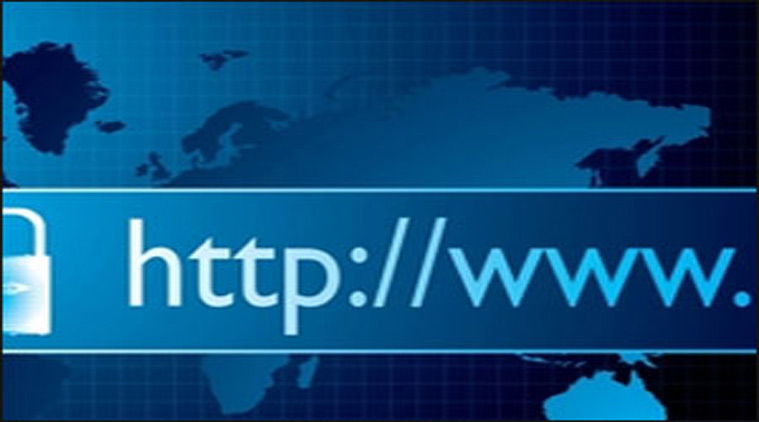Internet-less in Ahmedabad for five days
The regulation of our information technologies is not just about a service being suspended but a lifeline being withdrawn.
 The regulation of our information technologies is not just about a service being suspended but a lifeline being withdrawn
The regulation of our information technologies is not just about a service being suspended but a lifeline being withdrawn
We had just completed making fun of the government for trying to ban porn on the internet — my Twitter feed was quite animated with people making bets about what is the next big thing that will be banned on the internet, when, showing that lessons are difficult to learn, the government in Gujarat went one step further and banned the internet itself!
As one angry young man supported by teeming crowds held Ahmedabad to ransom, making demands that would have confused the Oracles at Delphi, Gujarat decided to practise its skills at rioteering. Millions (allegedly) suspended their rational faculties and at the behest of a leader who is as meteoric as a planet strike, burned some buses, looted some shops, and meted out undiscriminated violence on public property and imagination. As a response to these mobsters, the state decided that it was necessary to deploy military forces, tighten police security, and for reasons known only to itself, to selectively shut down mobile data services, all social media applications, text messaging and some Wi-Fi connections across the state.
 As it happened, I was visiting Ahmedabad at the time, and it was quite a shock to realise that for five days, I was supposed to live my life without the internet. The fact that there was no way of sharing this misery in the realms of the social web was only more frustrating. And I quickly realised that my withdrawal symptoms were not just from the Fear Of Missing Out (FOMO) or from the lack of cute cat pictures that I believe keeps my sanity in check. My entire life was disrupted by the crackdown. An emergency bank transaction could not go through because my one-time password could not be delivered to me.
As it happened, I was visiting Ahmedabad at the time, and it was quite a shock to realise that for five days, I was supposed to live my life without the internet. The fact that there was no way of sharing this misery in the realms of the social web was only more frustrating. And I quickly realised that my withdrawal symptoms were not just from the Fear Of Missing Out (FOMO) or from the lack of cute cat pictures that I believe keeps my sanity in check. My entire life was disrupted by the crackdown. An emergency bank transaction could not go through because my one-time password could not be delivered to me.
Public talks and student lectures had to be cancelled, not because of the tense situation but because we could not coordinate logistics of getting things into place. I couldn’t check in on my flight and couldn’t get a cab to take me there either. Conversations with friends and family outside of Gujarat worried because they could not keep track of how things were, and voice calls became the norm.
The lack of information and communication, instead of keeping things under control, only added to the anxiety that we were living in, because rumours still found their way, through phone calls, through conversations, through dramatised news channels, and we had no ways of verifying any of it. The regulation of our information technologies is not just about a service being suspended but a lifeline being withdrawn, leaving us in the lurch. It gives the state security that its own doings would not be recorded or reported, and it allows them to remotely control the behaviour and actions of millions of people who remain under a digital curfew, unable to protest or to engage with the situations that they are being put under.
It seems frivolous to be complaining about not having access to social media when it is juxtaposed against peace and safety. However, the ban on the internet is not about just the small population unable to share their daily dose of updates on what they ate for breakfast. We need to recognise this ban as the state’s exercise of control and regulation that goes beyond viral posts on Facebook and forwarded pictures on WhatsApp.
The internet is a huge political weapon. In fact, the ban on the internet was in many ways informed by recognising it as a tool by which the agitating masses can orchestrate meetings and plan gatherings. Much as I would not sympathise with the demands that are being made by these agitating groups, I would want to ensure that their constitutional rights to assembly and gathering are not overridden. If the state was so worried about the millions coming together, especially when the run-up to the event was already peppered with violence, why did they not ban newspapers and TV channels promoting and covering the event with such great glee?
We also need to remember that the internet has enabled people to fight back against authoritarian and undue processes that state forces deploy. The possibility of turning any cellphone into a witness, a data connection as a form of sharing acts of undue violence and invasion, which also happened in the wake of the Gujarat agitations, is one of the most powerful things that the internet gives to citizen activists. It is worth dwelling that this ban was as much about hiding these actions at the cost of civil liberties and agency.



























